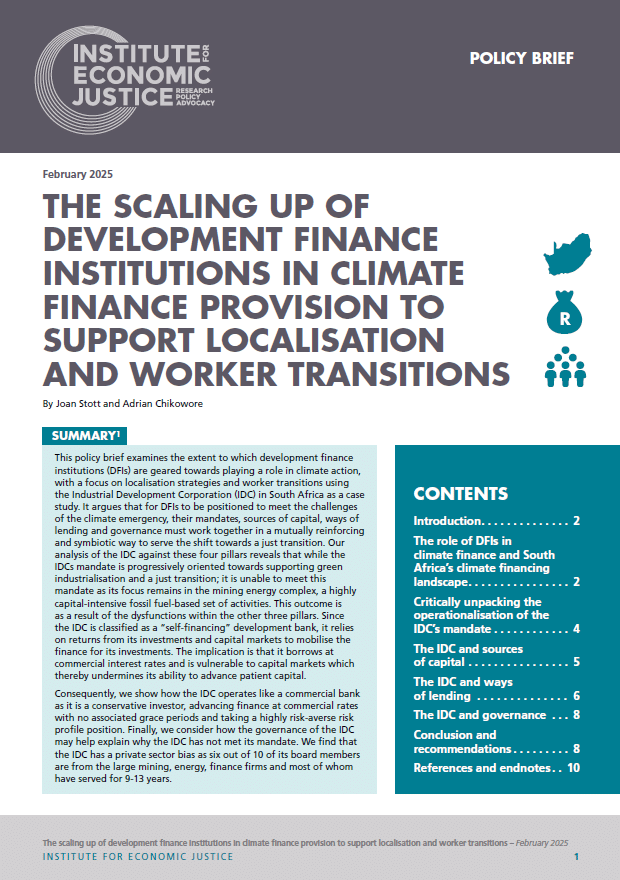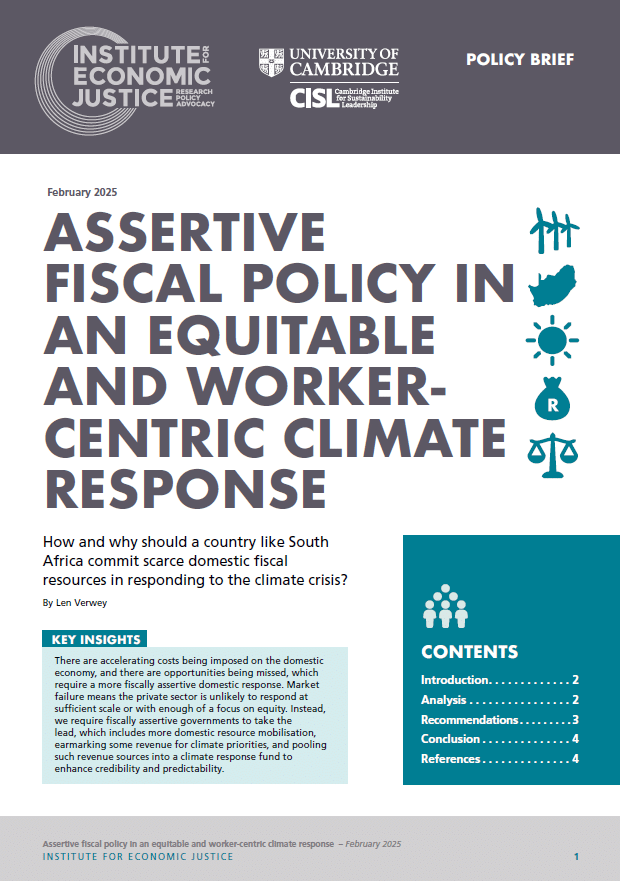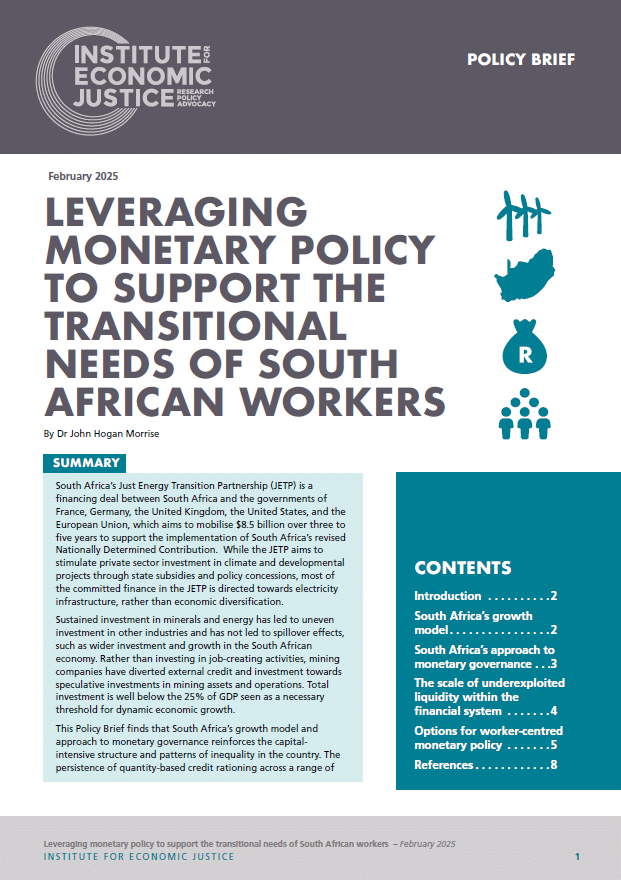The scaling up of development finance institutions in climate finance provision to support localisation and worker transitions

Development Finance Institutions (DFIs) play a critical role in scaling climate finance to support South Africa’s Just Energy Transition. Learn how reforms in governance, lending, and capitalisation can drive inclusive and sustainable growth.
Assertive Fiscal Policy in an Equitable and Worker-Centric Climate Response

South Africa’s worker-centric climate response focuses on equitable fiscal policies, state-led financing, and a climate response fund to ensure a just transition, addressing both climate challenges and socio-economic equity.
Leveraging Monetary Policy to Support the Transitional Needs of South African Workers

South Africa’s Just Energy Transition Partnership (JETP) must prioritise just transition finance to support renewable manufacturing, affordable housing, and adaptation infrastructure, ensuring a fair and sustainable transition for workers.
The scaling up of development finance institutions in climate finance provision to support localisation and worker transitions

This policy brief examines the role of DFIs in climate finance mobilisation, focusing on localisation and worker transitions. Using South Africa’s IDC as a case study, it highlights challenges and proposes reforms for equitable green transitions.
Assertive Fiscal Policy in an Equitable and Worker-Centric Climate Response

South Africa must adopt an assertive fiscal policy to address climate change, mobilising domestic resources for renewable energy, carbon pricing, and a climate response fund to ensure equity and worker-centric transitions.
Blog | Are binding fiscal rules the right solution for debt sustainability in South Africa?

The IEJ webinar series debates binding fiscal rules for South Africa’s debt sustainability, highlighting their limitations and advocating for fiscal standards and growth-focused policies.
Leveraging Monetary Policy to Support the Transitional Needs of South African Workers

South Africa’s Just Energy Transition requires monetary policy reforms to unlock R600 billion for sustainable growth, job creation, and worker-focused economic diversification.
